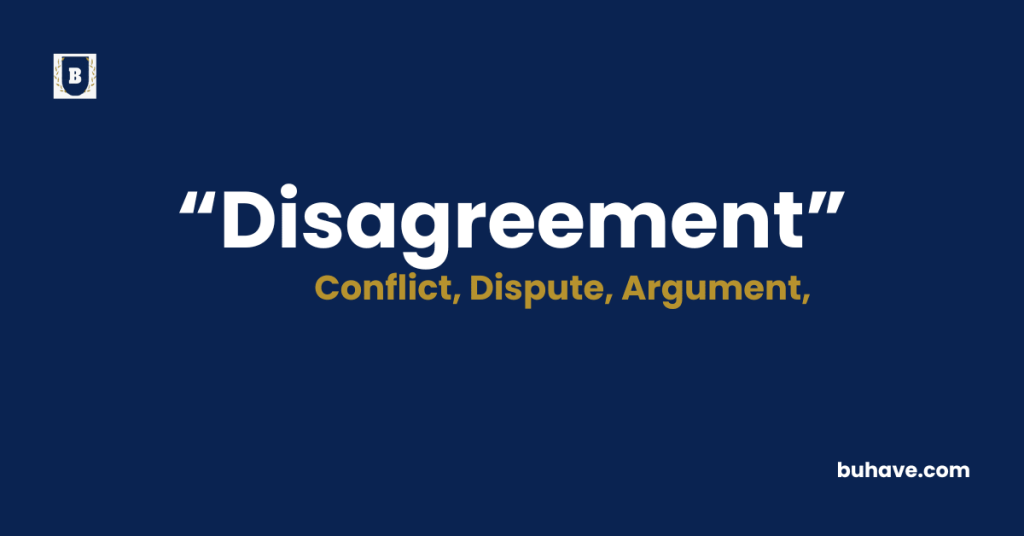The word ‘Disagreement’ (Noun) refers to a lack of consensus or harmony in opinion, belief, or action between individuals or groups. In this guide, you’ll learn the complete meaning, definition, etymology, examples, synonyms, antonyms, and common questions about how to understand and use ‘Disagreement’ effectively.
Disagreement Explained in Depth
A complete and detailed guide to the word ‘Disagreement’ including meaning, definition, examples, etymology, synonyms, and antonyms.
Meanings of Disagreement
Disagreement means a situation where two or more people do not share the same opinion or perspective. It can range from a minor difference in views to a major conflict or argument. It often arises in conversations, debates, and decision-making processes.
Definition
Disagreement is defined as a lack of agreement, harmony, or consensus between people or ideas. It signifies a divergence in thoughts, positions, or beliefs.
Etymology
The word “disagreement” stems from the prefix dis- meaning “not” or “opposite of,” and “agreement,” which originates from the Old French agreer and Latin adgratus, meaning “pleasing or in harmony.” The combined form highlights a condition where agreement is absent.
Example Sentences
- The board members had a serious disagreement about the company’s future direction.
- Despite their disagreement, they remained close friends.
- The disagreement between the two countries led to years of tension.
- Minor disagreements can often be resolved through honest communication.
Disagreement Synonyms
- Conflict
- Argument
- Dissent
- Opposition
- Dispute
- Differing opinion
- Clash
- Controversy
- Misunderstanding
- Debate
Disagreement Antonyms
- Agreement
- Consensus
- Harmony
- Unity
- Understanding
- Accord
- Conformity
- Collaboration
- Alignment
- Cooperation
FAQs about Disagreement
Here are some frequently asked questions (FAQs) about the word “Disagreement”
1. Is disagreement the same as conflict?
Not always. A disagreement may be a simple difference in opinion, while a conflict usually involves stronger emotions and actions. However, unresolved disagreements can escalate into conflict.
2. Can disagreement be healthy?
Yes, when handled respectfully, disagreement can lead to new ideas, deeper understanding, and better decision-making. It is often essential in innovation and critical thinking.
3. What causes disagreement?
Disagreements arise from differences in values, beliefs, knowledge, experience, or interpretation of information.
4. How can disagreements be resolved?
Through open communication, active listening, empathy, compromise, and mutual respect, most disagreements can be resolved constructively.
5. Is disagreement always negative?
No. While it can cause tension, disagreement is also a natural and necessary part of human interaction and growth.

















